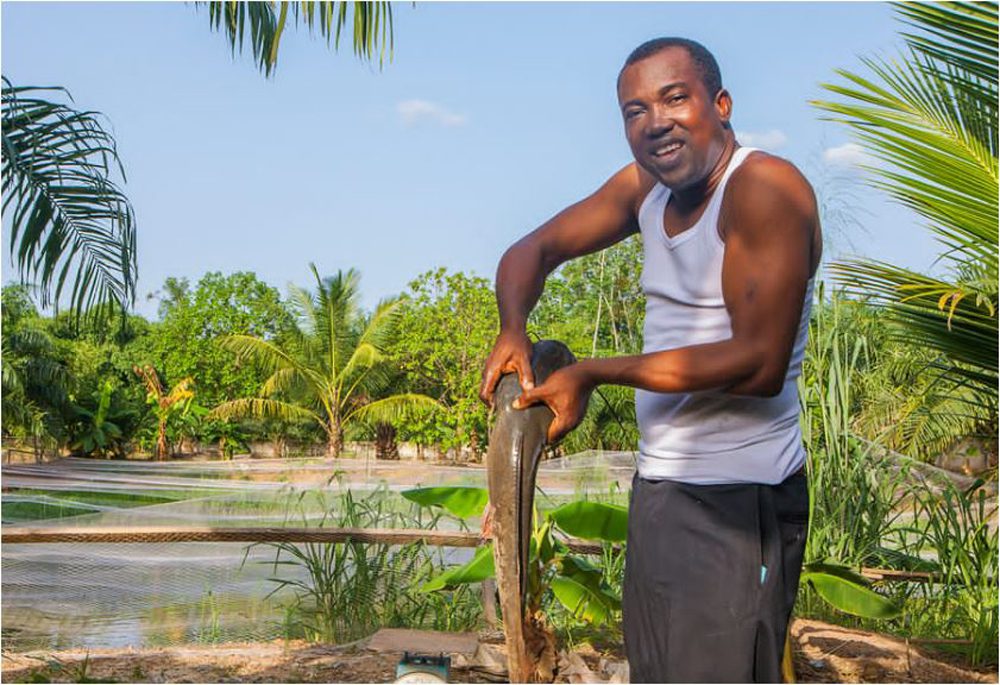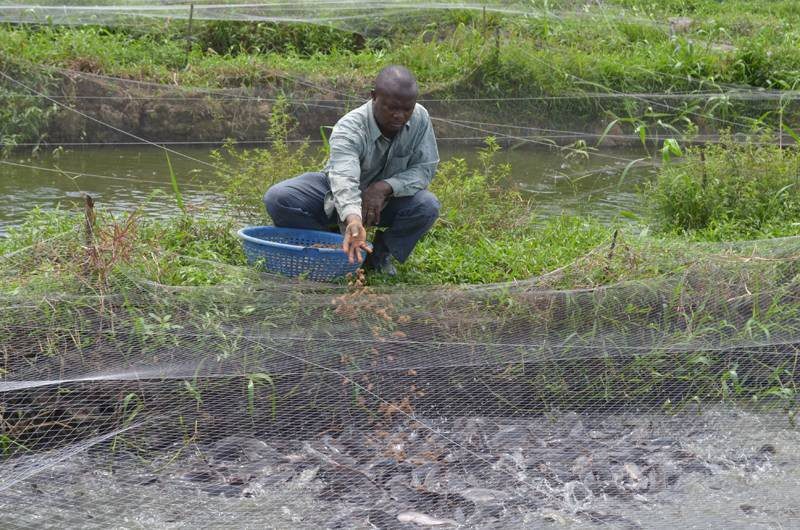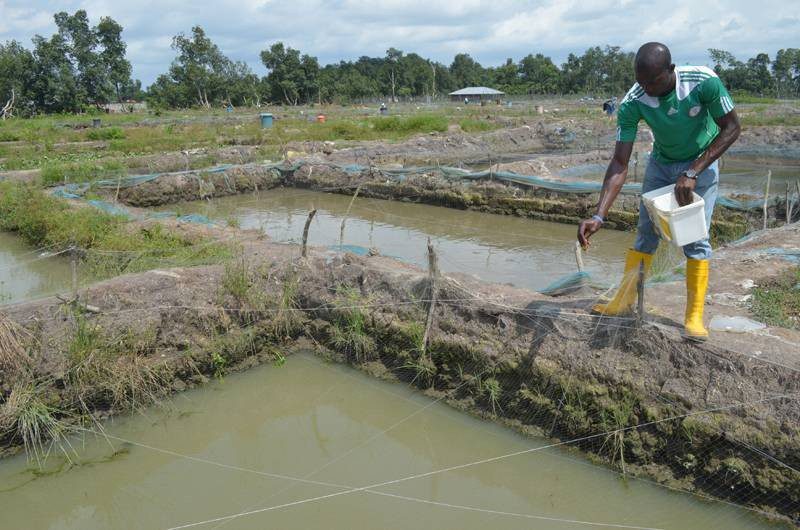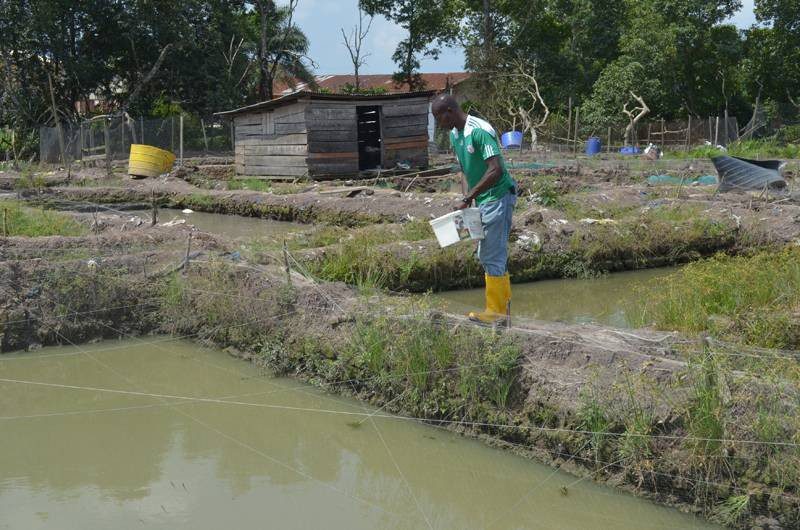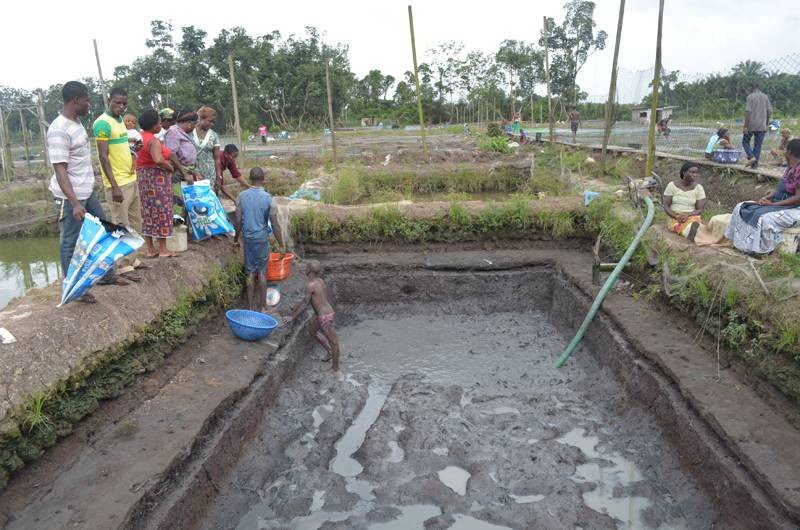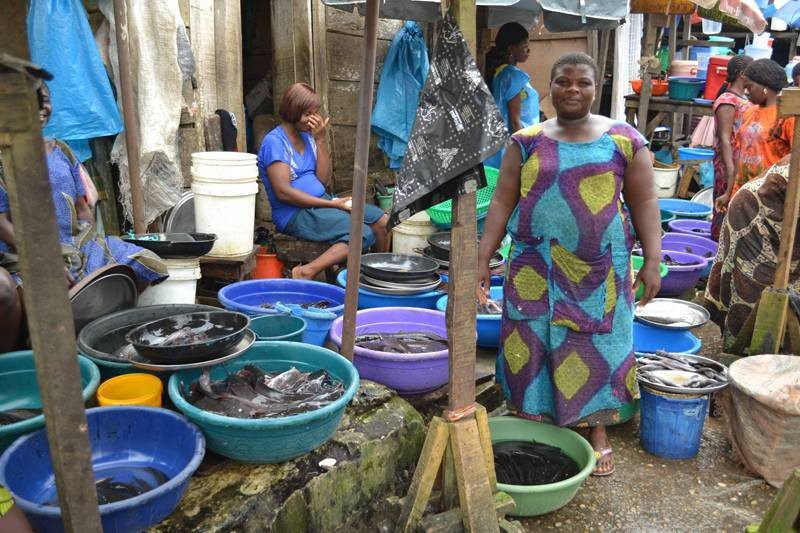Aquaculture in Nigeria
The demand for fish in Nigeria is significant, yet so is the country’s reliance on imports to meet this demand as nearly 50 percent of the country’s total fish consumption is met by importation. The total demand for fish in Nigeria is estimated at about 2 million metric tons (mt) annually. However supply remains only at roughly 1.5 million (mt). PIND is focused on supporting the Niger Delta’s aquaculture sector to meet this huge demand potential, thereby generating more jobs and increased income for the thousands of fish farmers dependent on aquaculture for their livelihoods.
Value Chain Analysis
To better understand the systemic constraints that are inhibiting growth in the aquaculture sector, PIND performed a value chain analysis. Data collected identified the following challenges in the sector:
- High cost of imported feed and a poor supply of locally manufactured feed
- Limited supply and quality of parent/brood stock and fingerlings
- Poor infrastructural facilities within hatcheries and grow-out farms
- Poor coordination between value chain actors
Delta State Fish Feed Analysis Study
Before moving forward with its plans to intervene for the development of the state’s fish feed industry, Delta State Government supported PIND’s suggestion to conduct a study to gain a more detailed understanding of the fish feed market and farmers’ buying behavior (how and when they buy feed) to better inform its decisions. In collaboration with Federal University of Technology in Akure (FUTA) Business Development Company, PIND helped conduct a Fish Feed Mill Feasibility Study, the first phase of which was to analyze the market for fish feed. Over 300 farmers, retailers, marketers and distributors were interviewed across Delta State, and three Focus Group Discussions (FGDs) were held in Warri, Oleh and Asaba. The study has been concluded and the results will be shared with the state government before the end of the year.
Read the aquaculture value chain analysis and the fish feed mill study.
Demonstration Pond Pilot Project Shows Best Practices for Improved Profitability in Growing Catfish
PIND worked with United Ufuoma Fish Farmers Association (UUFFA) in Warri, Delta State, on the pilot for the demonstration pond project to help instill best practices in the lucrative and popular practice of growing catfish. UUFFA is a large cooperative farm with 500 registered small scale commercial fish farmers and more than 2,000 ponds. This program enabled members of this business membership organization (BMO) to maximize their fish feed and grow catfish more efficiently and profitably. The eight demonstration ponds belonging to the 80 trained farmers were harvested after a six-month production cycle and the yields and profit were calculated. Where farmers overstocked their ponds to make up for high mortality of their fish, rate of deaths of stocked fish dropped by 30% post-intervention with an average yield was up to 711kg, even though farmers stocked less. Following our survey of 80 of the trained farmers, we can confirm that, in varying degrees from strongly to very strongly, 100% of the farmers agree that the project has been beneficial to them. As much as 96% have already adopted the taught practices on pond netting, 57% have adopted quarantine, 82% have adopted record keeping as taught during the intervention in their enterprises. 87% of trained farmers experienced increased sales as a result of the intervention. From records provided to PIND between January to June 2014 as a result of the intervention, farmers within the UUFFA experienced additional income up to N6,000,000 from sales of their fish.
Following the pilot, PIND spent 2014 expanding this intervention to even more farmers. PIND trained a pool of local service providers with capacity to deliver both technical and business knowledge to fish farmers to scale up the intervention to other locations in the Niger Delta. PIND formed a partnership with Grand Cereals who engaged two of these service providers and set up six demonstration ponds in Asaba and Ughelli, which would benefit CAMP 74 Fish Farmers Association of Nigeria (CAFAN) each with 40 and 120 members respectively. Additional income in fish farming business has meant increased membership in fish farming associations, evidenced by the increase in UUFFA’s membership from 400 as at September 2013 to 686 by end of third quarter 2014. Fish feed company Makarkute on their own has replicated the PIND model in the UUFFA cluster by running demonstration engaging the services of a PIND trained local service provider and Top Feeds is also in talks with PIND on the possibility of running demonstrations in other locations. In 2015, PIND signed an agreement with United States Agency for International Development (USAID)/PIND-funded Maximizing Agricultural Revenue in Key Enterprises and Targeted Sites (MARKETS II) and aquaculture input provider Premier Feeds in April 29, 2015.
Better Farmers with Viable Agricultural Businesses
Not only were farmers stocking less and yielding more after PIND’s intervention, they learned business skills to boost their income and the viability of their businesses. PIND partnered with United States Agency for International Development (USAID) MARKETS II project to conduct a training course using the Nigerian Agricultural Enterprise Curriculum (NAEC) to enhance their business management skills. Delivered in February at the EDC, the NAEC training taught the 80 farmers from UUFFA practical methods and techniques for planning production, projecting income, tracking costs and productivity, assessing risk, managing debt, and maximizing their savings and profit. Following this initial training, 60 additional farmers willingly covered their own costs to participate in a second -level NAEC training in Edo State to become NAEC trainers themselves. Three of these farmers organized themselves into a team to train 54 farmers in Edo State.
Bridging the Coordination Gap
In July 2012, PIND and representatives from the USAID MARKETS II project brought together an array of stakeholder groups at PIND’s Economic Development Center (EDC) to bridge the coordination gap between individuals and organizations within the aquaculture sector by sharing knowledge and experiences. Participants included representatives from the development, government, and fish farming sectors including fish feed manufacturers and distributors, hatchery owners, fish farmers, fish farm equipment suppliers as well as aquaculture consultants, PIND and EDC management, USAID MARKETS II staff and representatives of the Agriculture and Commerce Ministries of Delta State. Through the information sharing, stakeholders were able to understand the aquaculture sector from an array of different perspectives and to build linkages with fellow participants for possible future collaboration, problem solving, and potential partnership.
Association Strengthening to Access Finance
In 2013, PIND trained 16 farmers from three fish farming associations in Delta State on financial management and group dynamics. The Associations are UUFFA, Progressive Fish Farmers Association (PFF) and Liberty Fish Farmers (LFF). The farmers gained increased understanding of cash flow, team work, and techniques for business and credit planning, leading to commencement of loan disbursement to the three associations by two microfinance banks under PIND/USADF N3.2 million revolving loan scheme. The partnership started in 2012 to help improve the farmers’ businesses.
